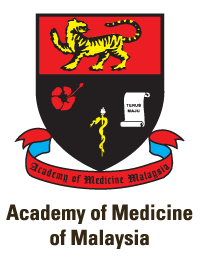
The Academy of Medicine of Malaysia (AMM) joins other health and medical organizations in supporting the Malaysian Medical Association's (MMA) Code Black campaign.
We echo their call for clear postgraduate pathways to specialization for contract doctors, detailed and transparent criteria for permanent posts, equal and fair treatment for contract and permanent staff, and job security for all doctors and allied health workers.
We reiterate our statement dated 21 October 2020 and 17 July 2020 urging similar improvements for providing junior doctors with job security, career progression opportunities and ultimately, securing the future of Malaysia's healthcare capacity.
It is disappointing that after five years in the contract system and 18 months in a pandemic, there is still no long-term solution for our junior healthcare professionals.
We strongly urge the government of the day to stay focused on supporting our increasingly overburdened healthcare system during this pandemic by enacting solutions that will benefit both our junior healthcare professionals and the system as a whole, in the long run.
We propose the following:
1. Make the criteria for awarding permanent posts clear and transparent
There is currently uncertainty around the future of medical officers (MO) at the end of their contracts.
There must be clear, detailed eligibility criteria and indicators for MOs to be offered permanent positions.
Transparent eligibility guidelines will ensure that junior healthcare professionals who meet a benchmark performance level are adequately rewarded.
2. Revise contract stipulations to match permanent posts
We acknowledge that permanent posts for all doctors may not be a sustainable solution for the long term. In which case, junior doctors must be awarded longer contract durations with the same pay structure and benefits as a permanent position.
Contract terms which adequately match their experience level will provide doctors on contract with assurance, security, and appropriate recognition for their service.
The current contract system places qualified MOs on a lower pay grade relative to doctors with similar experience in permanent posts.
Contract doctors also have fewer benefits, such as limited leave allowance, including for study, and exclusion from applying for postgraduate training scholarships.
The terms of their contracts must be revised to create better incentives for junior doctors to continue in the public healthcare system.
Contract doctors must be provided the same opportunity for postgraduate and specialist scholarships (Hadiah Latihan Persekutuan, HLP) with paid study leave (Cuti Belajar Bergaji Penuh, CBBP).
3. Extend contract durations and allow pursuit of postgraduate or specialization training
One of the major weaknesses of the current contract system is that it does not allow contract doctors to pursue postgraduate or specialist training.
This is problematic as Malaysia is already facing an acute shortage of specialists (as mentioned in our earlier statement dated 21 October 2020).
There should be an automatic ten-year contract awarded to graduates to complete their compulsory training and consequently begin postgraduate and specialization pathways.
This longer contract duration will allow junior doctors to better plan for their careers and futures, as well as incentivize MOs to complete their specialist training within the stipulated duration.
4. Decentralize specialty training to create more opportunities
Decentralizing specialty training by allowing smaller hospitals and training centers to be part of a recognized training program will create more opportunities for junior doctors to specialize.
The 'train where you are' method also reduces work-life disruption—i.e. trainees do not have to relocate or travel far for their training—and reduces inequality.
The AMM College of Surgeons has successfully deployed the e-training management platform which allows trainers to monitor and log their trainees' progress online (refer to our statement dated 23 August 2020).
The AMM is prepared to work closely with the Ministry of Health and other stakeholders in introducing this system for other programs and training hospitals across the country.
The current state of the pandemic in Malaysia shows that we need all hands on deck. All healthcare professionals at all levels have been essential in keeping our health system afloat.
The government must provide the next generation of healthcare professionals with adequate compensation, security, and recognition for their sacrifices.
We owe them a sustainable solution, now.
We, the undersigned:
Academy of Medicine of Malaysia (Professor Dr Rosmawati Mohamed, Master)
College of Anaesthesiologists (Dato Dr Jahizah Hassan, President)
College of Dental Specialists (Professor Dato' Dr Lian Chin Boon, President)
College of Emergency Physicians (Associate Professor Shaik Farid Abdull Wahab, President)
College of Obstetricians and Gynaecologists (Professor Datuk Dr Siti Zawiah Omar, President)
College of Ophthalmologists (Dr Nur Fariza Ngah, President)
College of Paediatrics (Professor Dr Thong Meow Keong, President)
College of Pathologists (Professor Dr Cheong Soon Keng, President)
College of Physicians (Dr Letchuman Ramanathan, President)
College of Public Health Medicine (Dato' Indera Dr Sha'ari Ngadiman, President)
College of Radiology (Professor Dr Norlisah Ramli, President)
College of Surgeons (Professor Dr Lim Kean Ghee, President)
(The Academy of Medicine of Malaysia, embracing 11 Colleges and 15 Chapters, is a registered body representing medical specialists in Malaysia)
ADVERTISEMENT
ADVERTISEMENT


































